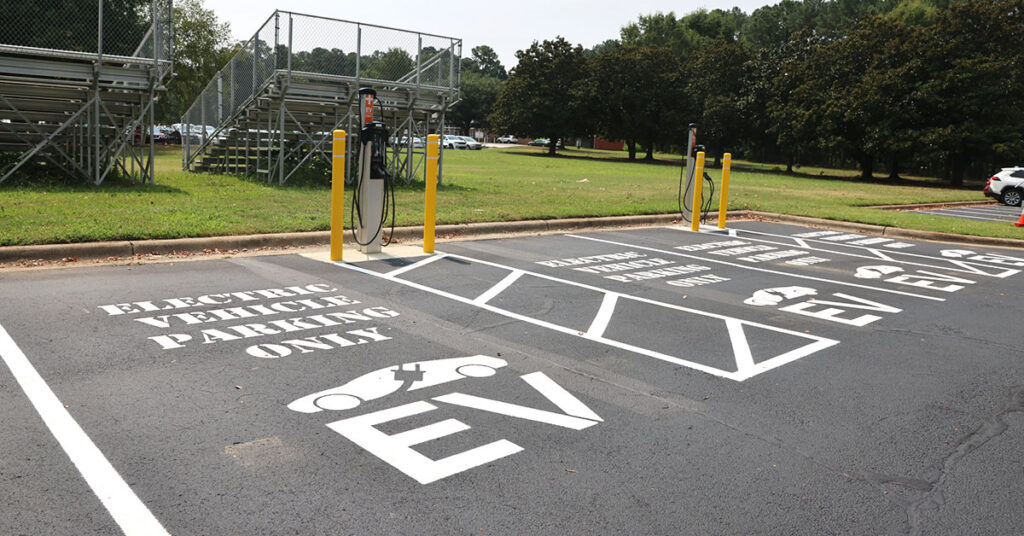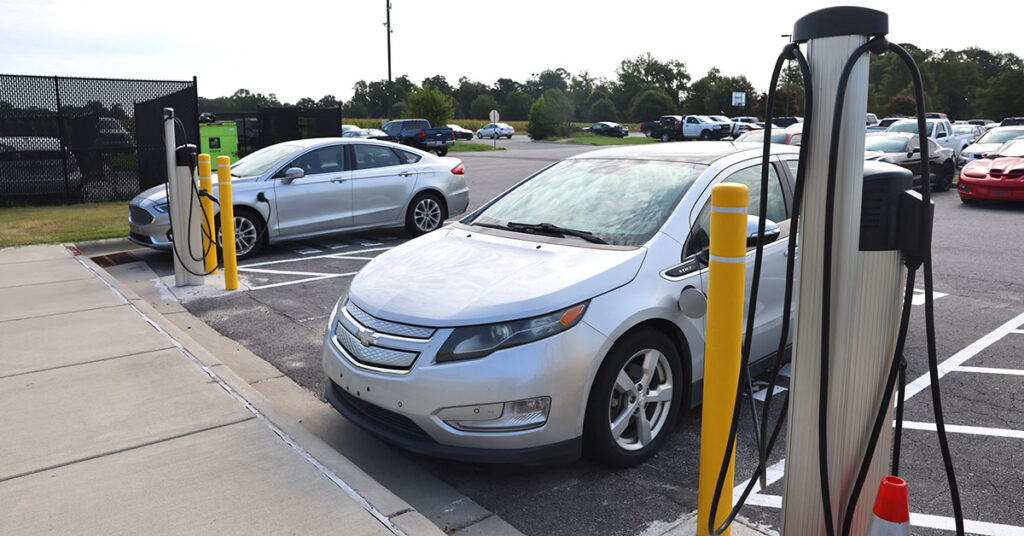Two electric vehicle charging stations are now active on Wayne Community College’s campus.
One station is located on the north side of campus adjacent to the Deacon Jones Automotive Center building, and another station is in the parking lot south of the Wayne Learning Center building. Each station has four ports to charge a total of eight vehicles at once.
The charging stations were funded by a grant administered by the NC Division of Air Quality as part of Phase 2 of the NC Volkswagen Settlement Program.
“In addition to serving as a premier educational and employment opportunity, WCC strives to make the environment both convenient and appealing to students, employees, and guests of the College,” said Derek Hunter, vice president of operations at WCC.
“Given the growing popularity of electric vehicles, the opportunity to provide EV chargers is yet another way we facilitate that goal. Additionally, the inclusion of electric vehicles in our Automotive Systems Technology program makes EV chargers a necessity. Having chargers on campus facilitates a component of required instruction that can be performed conveniently as needed.”
The chargers are open to the public. Payment is required for use and is calculated based on the amount of energy costs to the college. With the free ChargePoint app found at www.chargepoint.com, users can pay for and use the charging services. Vehicles can be in the charger parking locations only while actively being charged and should be removed from the spaces within the 30-minute grace period to avoid additional charges.
About WCC
Wayne Community College is a public, learning-centered institution with an open-door admission policy located in Goldsboro, N.C. As it works to develop a highly skilled and competitive workforce, the college serves around 11,000 individuals annually as well as businesses, industry, and community organizations with high quality, affordable, accessible learning opportunities, including more than 240 college credit programs. WCC’s mission is to meet the educational, training, and cultural needs of the communities it serves.



